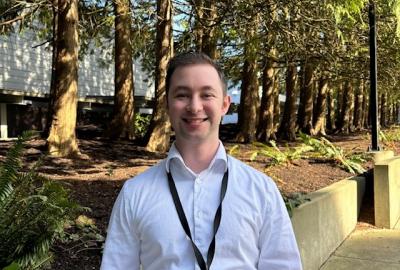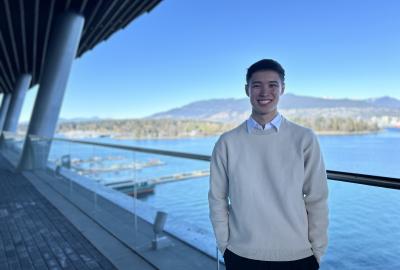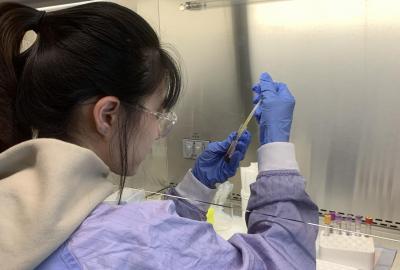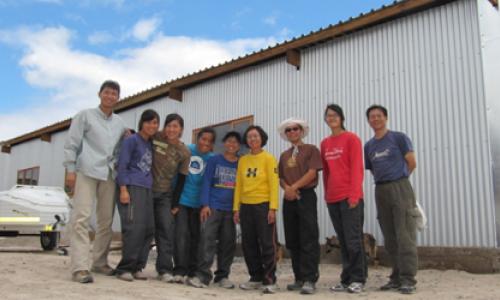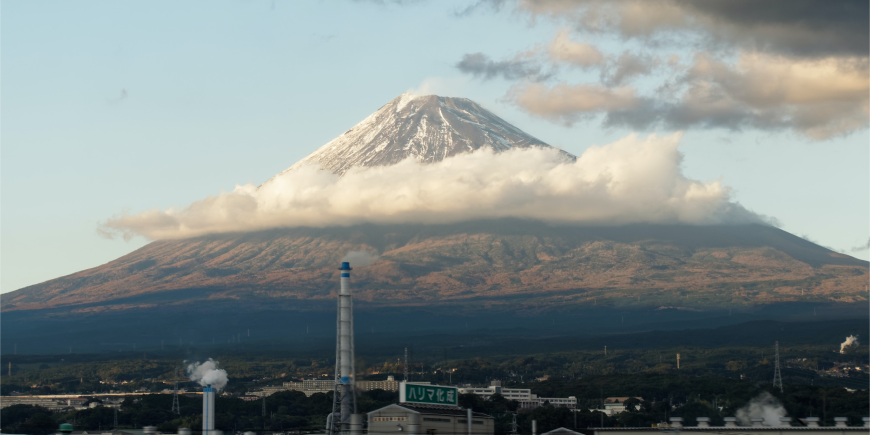
It has always been a wish of mine to do co-op abroad to gain valuable work experience, but the opportunities always seemed quite minimal, especially for a Health Sciences student like myself. However, after doing some personal research and taking the time to speak with SFU’s International Co-op Coordinator, Amy Lee, I was introduced to the Canada-Japan Co-op Program (CJCP). Hosted by UBC, the program aims to connect students from various post-secondary schools across Canada with paid internship positions in Japan. As SFU was a participating post-secondary school in the CJCP, students whom started internships with this program would also be able to fulfill their regular SFU Co-op requirements. I loved the idea of being able to travel whilst learning new things, so I decided to give the program a shot.
Amongst the possible employers, one company stood out, Kao Corporation, a research and development company specializing in home, toiletry and beauty care products. If the brand names Jergens and Biore sound familiar, that’s because they’re developed from Kao. Due to my familiarity with these companies and my interest in Japanese culture, I wasted no time in applying once I learned they were hiring. Soon, a phone interview was conducted, after which I was selected as their internship student for eight months.
I didn’t dare believe it—even on the day of my departure, I still wasn’t able to believe it. But eventually, as the plane descended and the intercom bellowed, “Ladies and gentlemen, we have arrived in Japan”, it finally hit me. I was in Japan, a place with easy accessibility to ramen and sushi and anime goods galore! Most importantly, it was where I would call home for the next few months.
Amidst the excitement, I also began to worry. Whilst I avidly enjoyed Japanese culture, I didn’t speak the language—much less understand it. How was I going to communicate with anybody? I still remember my first day; my stomach churned nervously as I waited for my supervisor to greet me. However, the moment I met him, he welcomed me with a kind smile. Starting then, I had a feeling everything was going to turn out much better than what I anticipated.
Although, I am not able to discuss my research ventures, I can attest to the fact that there is a huge difference between learning about molecular biology techniques in lectures versus applying them in real life. I made many mistakes in the beginning, but it was through these errors that I made corrections and found an efficient way to carry out my experiments. Every day, I learn new material and I constantly look forward to what other new knowledge I will acquire next.
One of my fears I had prior to my departure was my inability to communicate in Japanese. To add, I was aware that Japanese culture placed much importance on hierarchy, so I was quite worried I would mistakenly speak informally to the upperclassmen. However, they were always lenient and kind to me, which made me feel welcome. In the first few weeks, I was also slowly introduced to a group of individuals called doki. Doki is a term used to describe your colleagues that entered the company the same year as you. So, like me, they were freshmen, and I spent most of my time with them. For example, it is common in Japan to host nomikais, and I often joined in. A nomikai is a casual drinking party that allows coworkers to de-stress after work, but be warned: they can take place any day of the week, and may even extend to nijikais and sanjikais (Second and third drinking parties, respectively), which means you might not even get to bed until 3:00 AM. That being said, I was astounded to see that all of my colleagues were ready to work the next day. As such, my first nomikai was a very eye-opening experience.
Work ventures aside, I also take the free time I have to go exploring. It’s Japan, after all! So far, I’ve hiked up Mount Fuji with other CJCP interns (confirming that it will be at least a few years before I embark on another treacherous fifteen hour overnight hike), visited the renowned Ghibli Museum (Ghibli Studio are the masterminds behind renowned animated films such as ‘Spirited Away’, ‘Totoro’ and ‘Howl’s Moving Castle’) and travelled to the traditional, rustic city of Kyoto to enjoy the natural landscapes and sceneries, like the Arashiyama bamboo forest. There is just so much to see and do in Japan—the possibilities are endless.
Needless to say, my first four months here have been anything but mundane. For those curious about embarking on an International Co-op term, I highly advise you to pursue working abroad (be it in Japan or in other countries) if the opportunity arises. No doubt it will be different; it may even fall outside the boundaries of your comfort zone, but it’ll allow you to fully immerse yourself in another culture, learn more about yourself and your own capabilities. Personally, travelling to Japan was a very big step for me. However, I took the plunge and am now having a great time learning and exploring. What else awaits me for the next four months, I’m not too sure. What I do know is that no matter what, it’ll be a fantastic experience. Until then, じゃあね (Jaa ne: See you later)!
Beyond the Blog
- More information about the SFU International Co-op program can be found on their website.

